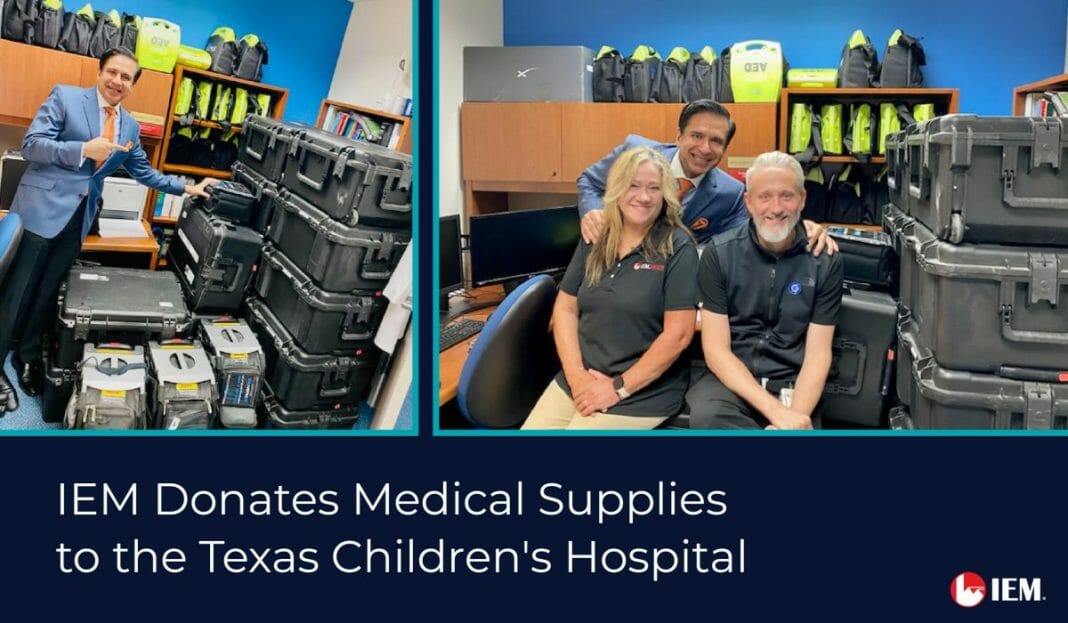IEM and IEM Health are honored to donate emergency medical kits, automated external defibrillators, and other medical supplies to Texas Children’s Hospital, the largest pediatric hospital system in the nation.
“Equipping medical centers with the proper resources could provide a lifeline for the communities they serve,” said IEM Health Chief Medical Director Dr. Rashid Chotani. “These items will be invaluable tools to be used in emergency situations, educate first responders, and ultimately to save lives. We hope the pediatric doctors, staff, patients, and their families benefit greatly from IEM’s donation.”
In November 2022, Texas Children’s Hospital and Baylor College of Medicine announced plans to lead the Gulf 7 – Pediatric Disaster Network (G7). This regional pediatric disaster network provides specialized care during widespread crises in Alabama, Florida, Georgia, Louisiana, Mississippi, Puerto Rico, and Texas. G7 works to improve regional capacity to provide pediatric care in large-scale crises and serves as a hub for disaster-focused education, training, and resource deployment.
Chotani and Deputy Director of IEM Health Dr. Lori Van Wagenen presented the items to Dr. Brent Kaziny, Medical Director of Emergency Management and Attending Physician, Emergency Center at Texas Children’s Hospital.
“As health care professionals and providers, we have a responsibility to our hospital, our city, and our community to prepare for disasters and to respond to them as quickly and effectively as possible,” said Dr. Kaziny. “We are so grateful for IEM’s generous donation, which will enhance our preparedness by providing us with the tools we need to train our staff and to educate first responders.”
Kaziny also serves as Co-Director, Disaster Preparedness Domain, EMS for Children Innovation and Improvement Center and Department of Pediatrics, Section of Emergency Medicine, Baylor College of Medicine.
“Coordinating attainable medical care for children from an expansive network of experts in times of crisis aligns with IEM’s mission,” Chotani added. “IEM Health is proud to have had the opportunity to deliver highly specialized and efficient, quality supplies that will help people of all ages, including the youngest survivors of disasters and emergencies.”



